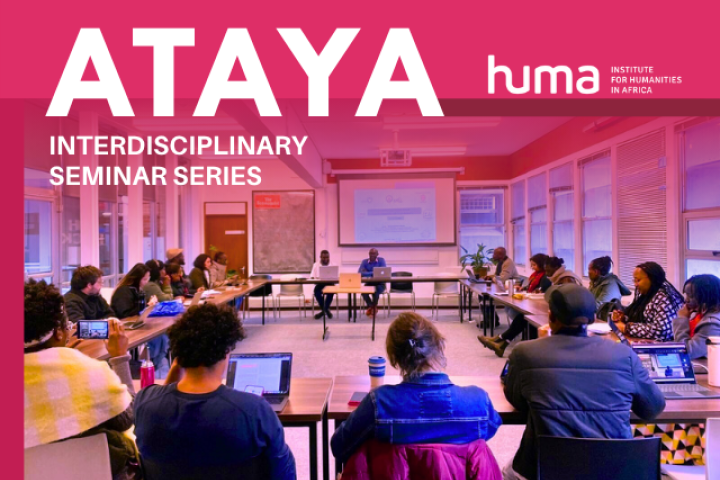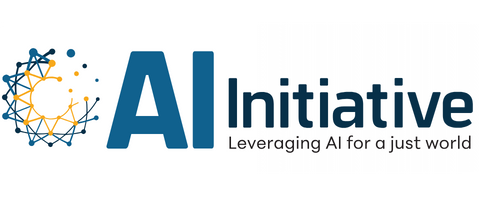AI Initiative Spotlight: HUMA's 2025 Ataya Interdisciplinary Seminar Series

Exploring AI, Ethics, and African Futures Through Humanistic Inquiry
The AI Initiative is proud to spotlight our partner institute HUMA's (Institute for Humanities in Africa) acclaimed Ataya: Interdisciplinary Seminar Series for 2025. This remarkable series brings together leading scholars from across Africa and beyond to examine the profound intersections between artificial intelligence, technology, and human experience through distinctly African perspectives.
Running from August through November 2025, this year's program features an exceptional lineup of presentations that directly align with the AI Initiative's mission to ensure that "everybody benefits equitably from the transformative power of AI." The series offers critical insights into how AI technologies impact African societies, cultures, and communities—perspectives that are essential for building more inclusive and ethical AI systems.
Why This Series Matters for AI Development
As the AI Initiative works toward creating "tools and opportunities that facilitate the transition to a just society," the humanities perspective offered by HUMA's seminar series provides crucial context for our work. The presentations explore fundamental questions about AI's role in African societies, offering insights that inform more ethical and culturally sensitive AI development.
The series addresses key themes that resonate with our research priorities:
AI Ethics and African Contexts: Multiple sessions examine how AI ethics must be understood through local African realities, moving beyond universal approaches to embrace contextual wisdom and indigenous knowledge systems.
Technology and Social Justice: Presentations explore how AI can either perpetuate or help address inequalities, with particular attention to decolonizing technology production and ensuring equitable access.
Digital Health and Community: Several sessions examine AI applications in healthcare, agriculture, and community building, offering insights into how technology can serve human flourishing.
Cultural Preservation and Innovation: The series explores how digital technologies impact African languages, traditions, and ways of knowing.
Highlights from the 2025 Program
The schedule features an impressive array of international scholars presenting cutting-edge research:
August: Foundations and Digital Transformation
- 7 August 2025 - Efficient Complex System Analysis on Parallel Architectures with Ethical Machine Learning (Messi Nguele Thomas, University of Yaounde & University of Ebolowa, Cameroon)
- 21 August 2025 - "Share the Link": The Phenomenal Rise of Digital Prayer Platforms and Communitarianism (Abena Kyere, University of Cape Town)
- 28 August 2025 - Digital Population Registries and Artificial Intelligence in Africa (George Macaire Eyenga, University of Dschang, Cameroon)
September: Ethics, Agriculture, and Publishing
- 1 September 2025 - AI in Agriculture: Ethical Considerations in Africa (Ugochi Adaku Okengwu, University of Port Harcourt, Nigeria)
- 4 September 2025 - Editorial Governance and the Use of AI in African Scholarly Publishing (Yousra Hamdaoui, Université Hassan II Mohammedia, Morocco)
- 15 September 2025 - Integrating AI to Decolonize Technology Production and Access through African Epistemologies: the BMV-6 Ventilator as an Experiment in Reverse Epistemicide (Babson Ajibade, University of Cross River State, Nigeria)
- 18 September 2025 - Beyond Universal Ethics: Rethinking AI in Digital Health Through Wolof Aesthetic-Ethical Codes and Ubuntu Philosophy (Oumy Thiongane, Université Assane Seck Ziguinchor, Senegal)
October: Crisis, Healthcare, and Innovation
- 2 October 2025 - The ethics of Artificial Intelligence (AI) in Africa in the face of local realities: reflections from Madagascar (Herimampita Rarivomanantsoa, Université d'Antananarivo, Madagascar)
- 9 October 2025 - AI in times of crisis: what role in information warfare in Mali and in peace-building? (Mariame Sidibe, University of Legal and Political Sciences of Bamako, Mali)
- 16 October 2025 - The Internet of Things (IoT) and Artificial Intelligence (AI) in Healthcare: Opportunities and Challenges (Idy Diop, Université Cheikh Anta Diop de Dakar, Senegal)
- 23 October 2025 - The emotional worlds of becoming a start-up (Zarreen Kamalie, Stockholm University, Sweden)
- 30 October 2025 - TBC (Andrea Lopes da Costa, Federal University of the State of Rio de Janeiro, Brazi)
November:
- 6 November 2025 - TBC (Wania Amélia, Belchior Mesquita State University of Northern Rio de Janeiro Darcy Ribeiro)
- 13 November 2025 - TBC (Antonadia Borges, Federal University of Rio de Janeiro, Brazil)
- 20 November 2025 - TBC (Liza Cirolia, University of Cape Town, South Africa)
- 27 November 2025 - TBC (Minga Kongo, University of Cape Town, South Africa)
The Ataya Tradition: Reimagining Academic Engagement
The Ataya Interdisciplinary Seminar Series represents more than just academic presentations—it embodies HUMA's vision of creating "an enticing and vibrant space for critical conversations and encounters." Named after the West African tea ritual that fosters community dialogue, Ataya is designed to encourage a different kind of intellectual engagement that challenges traditional academic formats.
This series serves as both a physical and virtual space that foments "a different vision of the university"—one where rigorous scholarship meets accessible dialogue, where international perspectives engage with local insights, and where the HUMA community connects across disciplinary boundaries. Each session creates opportunities for the kind of deep, sustained conversation that drives meaningful research and builds lasting intellectual relationships.
Join the Conversation
When: Thursdays, 13:00-14:00 SAST (August-November 2025)
Where: HUMA Seminar Room, 4th Floor, Humanities Building, UCT Upper Campus
Format: Hybrid - attend in person or register for online participation
Each Ataya session centers around a selected academic paper authored by the presenter. This format ensures focused, substantive discussions grounded in original research. The presenter introduces their work and facilitates discussion with participants, creating space for the kind of rigorous yet accessible intellectual exchange that HUMA champions.
For the best experience, we recommend reading the featured paper before attending each session. Papers are made available in advance on the HUMA website, allowing participants to come prepared for meaningful engagement with the ideas presented.
All seminars are open to staff, students, and the public. The series provides a consistent place for engagement, exchange, and interaction across the faculty and broader community. Whether you're an AI researcher, policy maker, student, or community member interested in technology's impact on society, these conversations offer valuable perspectives on building more equitable AI futures.
A Partnership for African AI Futures
The AI Initiative's collaboration with HUMA reflects our shared commitment to ensuring that African voices, values, and wisdom traditions inform global AI development. By supporting and promoting this seminar series, we're investing in the kind of interdisciplinary dialogue that will help create AI systems that truly serve all of humanity.
These seminars offer more than academic presentations—they provide a forum for imagining and building more just technological futures. As we work toward AI systems that reduce inequality rather than perpetuate it, the insights generated through HUMA's Ataya series will be invaluable.
We encourage our community to engage with this exceptional program of scholarship. The conversations happening in the HUMA seminar room are shaping the future of ethical AI development - join us in making sure that future includes everyone.
Developed with AI assistance.
